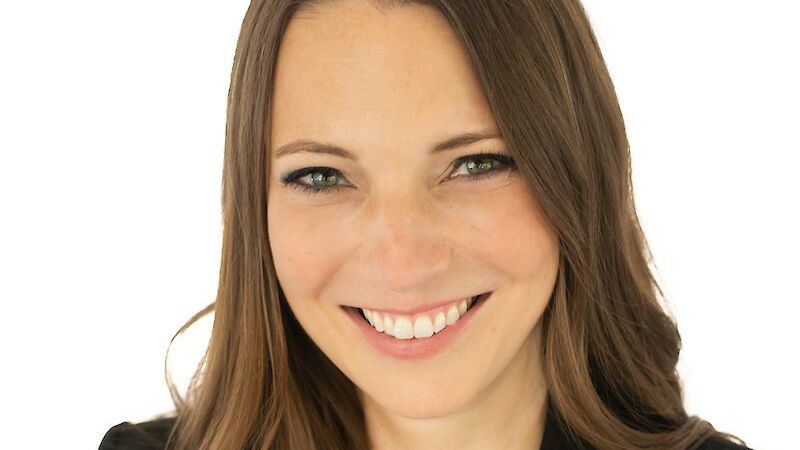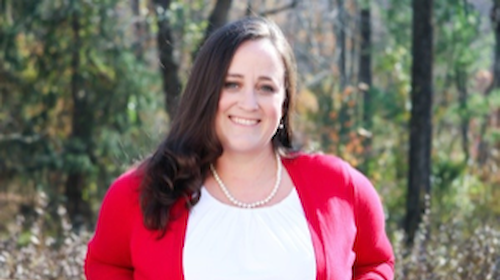"Collaboration is a must for a strong and bright future"
GCB FutureTalks - North American Edition, Vol. 1
 © Annika Clutch
© Annika Clutch
In a recent conversation with the GCB's managing director Matthias Schultze, Annika Clutch shared her success factors for virtual meetings as well as her perspective on improving diversity and inclusion in the event industry. The interview kicks off the GCB's new interview series with North American event planners.
Annika is a veteran of the meetings and event industry. After having started out with large scale and televised events in her hometown of Berlin, Annika now lives in the US and has been planning meetings and events for Storck USA, a subsidiary of German confectionery manufacturer August Storck, for over a decade.
Matthias Schultze: The world of business events has changed tremendously in the past year. Do you have any examples of virtual or hybrid programs that you may have executed?
Annika Clutch: Change, even with tragedy, always brings new opportunity. Our National Sales Meeting (NSM), one of our most important annual meetings, was scheduled for June 2020. Since we could not meet in person, we went virtual, and thus expanded the attendee list. A significant challenge was how to promote networking in a virtual environment. We hosted pre-event "tech check happy hours" to ensure that all participants were familiar and comfortable with the meeting platform we used, and to allow for a less formal virtual face time. The tech check was incredibly valuable, as our IT team was assisting everyone with questions and challenges, so that the actual meeting could kick off without a hitch. With our meeting invitation, we included our IT contact info, the request to enter their full name when they log in, and to have their cameras turned on.
Even in June, people started to feel "Zoom Fatigue", and this all-day meeting could have easily resulted in loss of interest by attendees. To address this, we structured the meeting content with a focus on purpose and precision. Prior to the meeting, all invitees received a care package from us that contained several small, numbered packages. At different points during the meeting, the presenters or host would prompt the attendees to open a specific envelope or package, which tied into the content of the presentation. Some was product-related, some were pick-me ups, and there was also a thank you gift towards the end. We made sure to include some branded Covid-care items as well as a nod to the number one selling retail item of 2020 - a roll of toilet paper. The feedback was incredibly positive, and some attendees reached back out to me in fall to tell me that our NSM was best in class after they had attended a few others.
Are you able to share any details on what factors made this meeting a success?
In my opinion, the key to success of this virtual meeting was two-fold: a lot of preparation, great team collaboration, and creativity went into the planning to orchestrate a flawless meeting. We had a separate practice run with our presenters ahead of the meeting and advised on set-up and lighting. The meeting itself had clear messages, take-aways, and action items, as well as a lively execution. Make clear when there will be breaks as you would at an in-person meeting, so people know when they can return phone calls or check emails; engage with your audience, especially if you know in advance who is attending; and stick to your script without reading it off. Present naturally as you would in front of a live audience. Designate a person to monitor the Q&A for the presenters. If mistakes happen, if there is an audio issue, if a slide will not come up, don't sweat it - everyone understands that we are not only enabled by technology but sometimes limited, too. Before we went live, I reminded my team to be patient and forgiving with themselves, and the audience will do the same.
The latest research of the German Convention Bureau's innovation network Future Meeting Space shows that the relevance of events for an organization's overall communications mix will continue to grow in the future. What is it that you need from event suppliers - from locations to tech service providers - to be able to create successful events in the future?
I am expecting more hybrid meetings to expand the reach that an in-person meeting may not have. I would also imagine that participants are going to be more inclined to change their in-person attendance to a virtual attendance on short notice. All that means that there is a great need for higher flexibility on vendor side and in contracts, greater technical options and support as well as a decrease in AV cost. These costs have fluctuated incredibly, and the high cost oftentimes was hardly justifiable. I'd like to see the ever-long negotiations for lower and more reasonable rates to be a topic of the past and look forward to hotels and venues with their own standard equipment or a reliable AV partner who can provide equipment suited for successful hybrid meeting executions at reasonable and consistent prices right off the bat. I also think that health and hygiene need to be a #1 priority. This has already changed how a lot of hotels operate, and once we are fully operating at regular speed and capacity it will truly highlight the importance of elevating housekeeping to hygiene-keeping.
In our "New Now", new tasks require new skills. In your opinion, what skills and competences will be in demand for event professionals in the future? Are you looking to, or are you already furthering your education on any specific topics/skills?
COVID-19 has forced us into a virtual world, and I expect it will have a similar effect as 9/11 did in the sense that some changes and measures are here to stay. One of those changes may be that companies will evaluate more closely in the future if a meeting must be held in-person, whether it can be a hybrid model, or even entirely virtual. This changes how I approach the parameters for meetings and events as well as timelines. I have joined many webinars and round tables over the past year and learned a lot about different engagement strategies. It is wonderful to be able to learn from each other - it is testament to what a tight industry hospitality truly is.
Aside from the long-term effects of the Coronavirus crisis, I am also holding myself to high standards when it comes to improving diversity and inclusion at meetings and events. When you feel like you are already doing everything you can, I can almost guarantee you that there is another world you have not considered because it is an ever-evolving topic, and we need to do a better job at not just checking boxes, but genuinely welcoming everyone equally. Take a closer look at who you are signing contracts with. Ask about their DEI statement and efforts. Ask how they support their community. Oftentimes you might be able to negotiate that a portion of your room rate will be donated towards a non-profit to fight hunger, homelessness, human trafficking, or other causes that might stand out to you, or that are prevalent to the area where your meeting/event is held. There are many ways we can make a positive impact.
For years, I have also been asking about sustainability and community outreach. I ask what happens to the food that is left over. The answers vary depending on local regulations and restrictions but in most cases, food should not have to go to waste. When you build menus strive to support responsibly sourced ingredients. Again, ask questions. I have never encountered anyone who would close the door when I asked questions around DEI, sustainability, and community support. In fact, everyone has been eager to share their missions with me, or to help me develop some for my meeting.
To keep up with the speed of change driven by the digital transformation and global events such as the Covid-19 pandemic, the business events sector needs to drive innovation. How do you come up with new ideas? Would you be/ Are you open to collaborate with other event professionals to discuss new solutions and the future of business events?
I full-heartedly believe that cross-functional collaboration and an exchange of diverse viewpoints are a must for a strong and bright future. We have to ensure that all voices and ideas are heard. There are many wonderful organizations and associations that have worked tirelessly on providing planners like me with a platform to exchange experiences and ideas, to bring all parts of the industry together for that exchange and to listen to one another. If we can keep this up in a post-Covid world, we will be much stronger and possibly better prepared to overcome future obstacles.
 ©
© ©
© ©
© ©
©